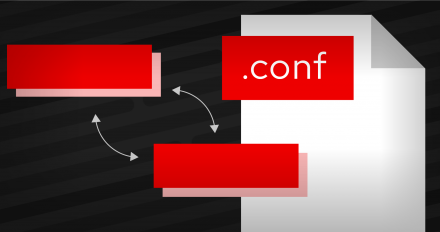DJ Delorie
DJ Delorie's contributions

Article
The state of documentation for the GNU C library and kernel
DJ Delorie
Dive into the state of software documentation for the GNU C library and kernel and explore ways developers can help improve docs.

Article
Parallel programming: When concurrency meets Murphy's law
DJ Delorie
Parallel programming isn't always parallel. This article examines examples of failed concurrency assumptions in the GNU C Library glibc.

Article
Coming in glibc 2.33: Reloadable nsswitch.conf
DJ Delorie
Learn how glibc version 2.33 will support reloading nsswitch.conf changes without having to stop and start your application.

Article
How the GNU C Library handles backward compatibility
DJ Delorie
The GNU C Library handles backward compatibility like a champ. Learn how to use compat symbols to control which version of glibc the linkers use.

Article
The Non-complexity of /etc/nsswitch.conf
DJ Delorie
An overview of the current nsswitch.conf behavior and a request for input on the future behavior of the name services switch interface in glibc.

Article
Microcontainers for Unit Testing
DJ Delorie
Containers offer new testing opportunities, especially for foundational system software like GLIBC or tests that depend on system changes for exercising code paths

Article
Why you should care about RISC-V
DJ Delorie
If you haven't heard about the RISC-V (pronounced "risk five") processor, it's an open-source (open-hardware, open-design) processor core created by the University of Berkeley. It exists in 32-bit, 64-bit, and 128-bit variants, although only 32- and 64-bit designs exist in practice. The news is full of stories about major hardware manufacturers (Western Digital, NVidia) looking at or choosing RISC-V cores for their product. But why should you care? You can't just go to the local electronics boutique and buy a...
 Article
Article
Malloc Internals and You
DJ Delorie
Introduction In my last blog, I mentioned I was asked to look at a malloc performance issue, but discussed the methods for measuring performance. In this blog, I'll talk about the malloc issue itself, and some measures I took to address it. I'll also talk a bit about how malloc's internals work, and how that affects your performance. First off, a bit of terminology - throughout this blog, these terms are defined to mean as follows... memory a region of...

The state of documentation for the GNU C library and kernel
Dive into the state of software documentation for the GNU C library and kernel and explore ways developers can help improve docs.

Parallel programming: When concurrency meets Murphy's law
Parallel programming isn't always parallel. This article examines examples of failed concurrency assumptions in the GNU C Library glibc.

Coming in glibc 2.33: Reloadable nsswitch.conf
Learn how glibc version 2.33 will support reloading nsswitch.conf changes without having to stop and start your application.

How the GNU C Library handles backward compatibility
The GNU C Library handles backward compatibility like a champ. Learn how to use compat symbols to control which version of glibc the linkers use.

The Non-complexity of /etc/nsswitch.conf
An overview of the current nsswitch.conf behavior and a request for input on the future behavior of the name services switch interface in glibc.

Microcontainers for Unit Testing
Containers offer new testing opportunities, especially for foundational system software like GLIBC or tests that depend on system changes for exercising code paths

Why you should care about RISC-V

Malloc Internals and You
